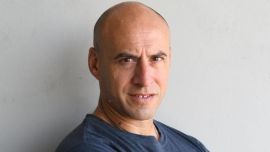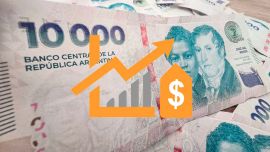Brazil’s annual inflation hit the highest level in two years and economic activity rose more than expected according to data published Friday, pressuring central bankers as they mull the size of their next rate hike.
Official data showed consumer prices rose 5.48 percent in March from the year prior, just above the 5.45 percent median estimate of analysts surveyed by Bloomberg. On a monthly basis, prices increased 0.56 percent, down from February’s rate of 1.31 percent.
Brazil’s economic activity index, a proxy of gross domestic product, rose past expectations in February, gaining 0.44 percent on the month, according to a separate release from the Central Bank. The increase was above the 0.3 percent forecast.
The surge in inflation has the central bank poised to take the key rate, now at 14.25 percent, even higher to tame price pressures. Its efforts to get cost-of-living increases under control are being blunted by wild swings in Brazil’s currency and hot household demand.
All of the groups of the goods and services monitored by the statistics agency became more expensive in March. Food and beverages drove the price increases with a 1.17 percent monthly jump in costs.
Annual inflation is climbing further above the three-percent target despite the bank’s three-straight full-percentage point rate hikes and growing warnings about a global economic slowdown. Central bankers have pledged a borrowing cost increase of a smaller size at their next meeting in May.
The stubbornness of price increases within Brazil coupled with the uncertainty caused by US President Donald Trump’s trade war has left investors debating just how much higher the benchmark Selic needs to go.
A strong jobs market and rising wages are driving underlying gauges of inflation that strip out volatile items — like food and fuel — and are closely monitored by central bankers. The lingering pressures “will keep policymakers at the central bank in a hawkish mood,” Jason Tuvey, Deputy Chief Emerging Markets Economist at Capital Economics, wrote in a research note.
On the ground, the one-two punch of hefty borrowing costs and soaring grocery bills, pushed up by bad weather, has Brazilian consumers fuming at President Luiz Inácio Lula da Silva. Even with government efforts softening the blow, the leftist leader’s approval ratings have tumbled in recent months.
related news
by Andrew Rosati, Bloomberg























Comments